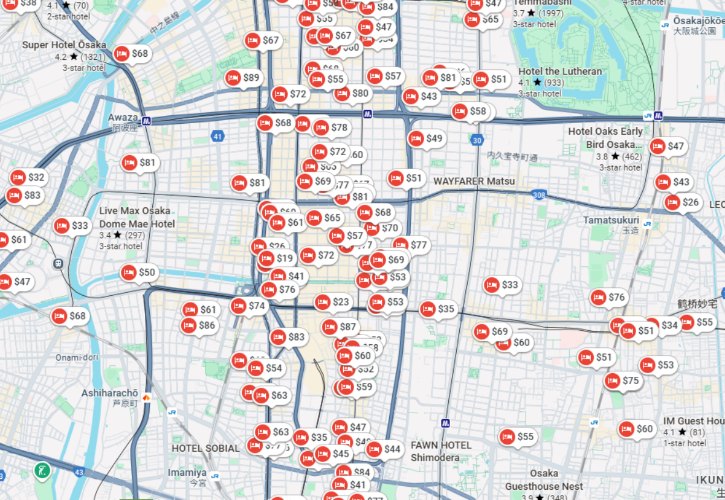
Want to stay in Osaka or Kyoto without overpaying?
You don’t need travel hacks, just a smarter way to plan.
Knowing when to visit, when to book, and what to skip can easily cut your costs in half.
Here are 5 proven ways to do it right. 😊
1. Choose Off-Peak Months to Save More
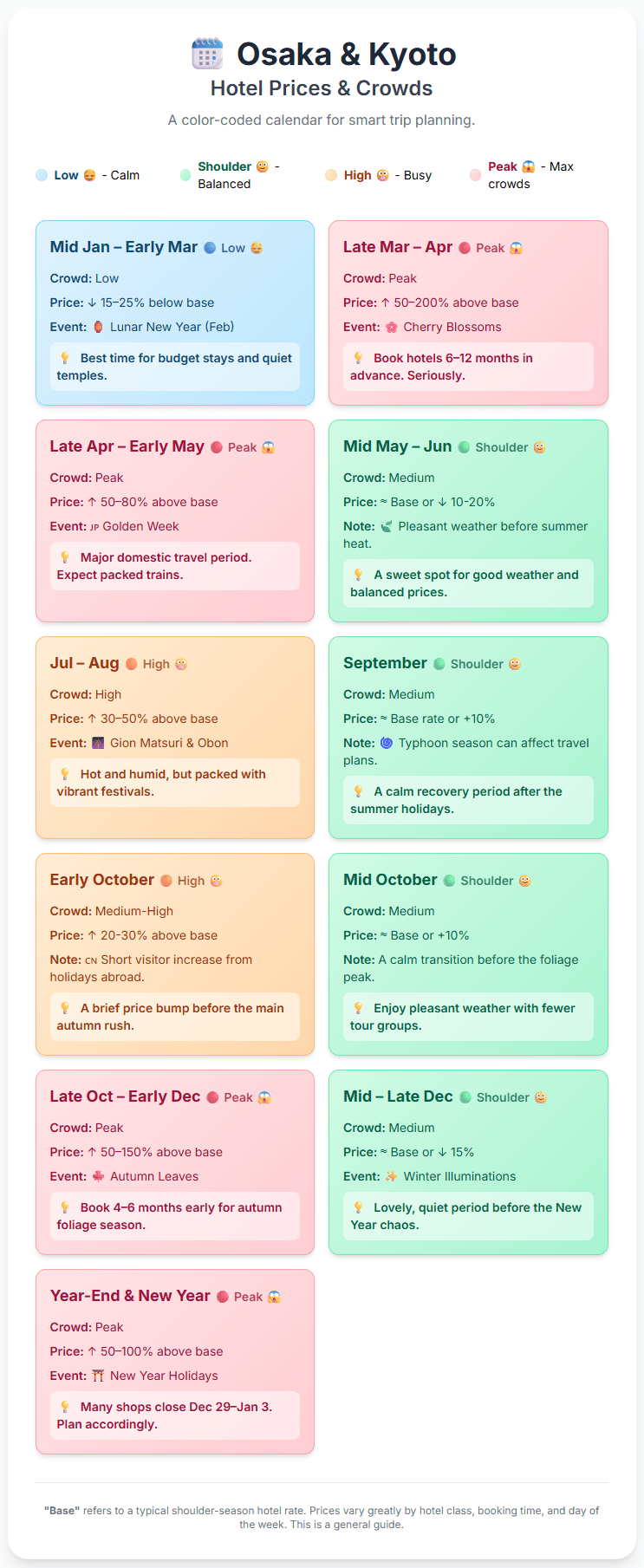
Here’s the single biggest factor affecting hotel prices: when you go.
Osaka and Kyoto have clear peak and off-peak seasons, and the price difference is dramatic.
We’re talking 50-100% savings or even higher just by shifting your dates by a few weeks.
a. The Most Expensive Times (Avoid These if Possible)
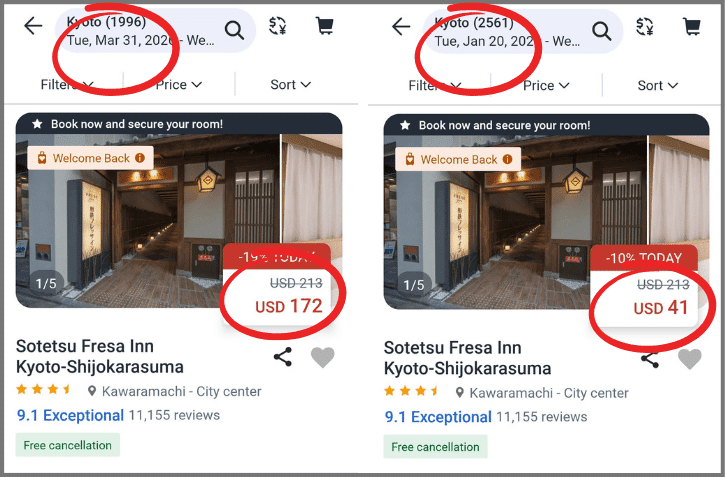
- Late March to Early April: Cherry blossom season. Everyone wants to see the sakura, so hotels know they can charge premium rates.
- Late April to Early May: Golden Week, Japan’s longest holiday period. Domestic travelers book everything solid months ahead.
- August: Obon Festival plus summer school break. Another major domestic travel period when prices spike.
- Early October: Chinese National Day brings a short wave of overseas visitors, driving up demand and prices.
- Late November to Early December: Autumn foliage season peaks during this period. The fall colors are stunning, but you’ll pay for the privilege.
During these peak periods, a standard 3-star hotel in Kyoto can easily hit ¥30,000+ per night (around $200).
In April’s cherry blossom peak, rates can exceed ¥100,000 ($667) for a few nights, which is 3 to 4 times higher than the same hotel would cost in February.
b. The Sweet Spots (Book These Months)
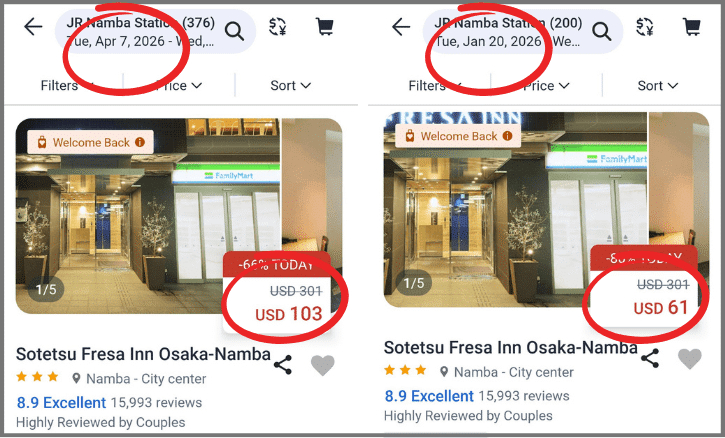
- Mid-January to Mid-March: After the New Year’s rush, tourism drops significantly. It’s cold, but hotels are cheap and available.
- June: Yes, it’s rainy season (tsuyu), but if you don’t mind an umbrella, you’ll find some of the lowest prices of the year.
- September: After summer holidays end and before Chinese National Day begins. Just be aware of potential typhoons in early September.
- Mid-October: After Chinese National Day crowds leave but before autumn foliage season begins.
- Mid to Late December: After the autumn foliage crowds leave but before the New Year’s holiday surge begins.
The numbers speak for themselves. A 3-star hotel in Osaka that costs ¥9200 ($61) in January can jump to ¥15536 ($103) in April. That’s about 70% increase.
2. Plan Ahead and Book 6 to 12 Months Early
This might seem obvious, but the timing really matters in Osaka and Kyoto.
Many hotels and ryokans in these cities open their booking windows 6, 9, or even 12 months ahead.
And unlike some Western markets, procrastinating doesn’t usually pay off. Prices climb as availability shrinks.
a. Why Early Booking Matters
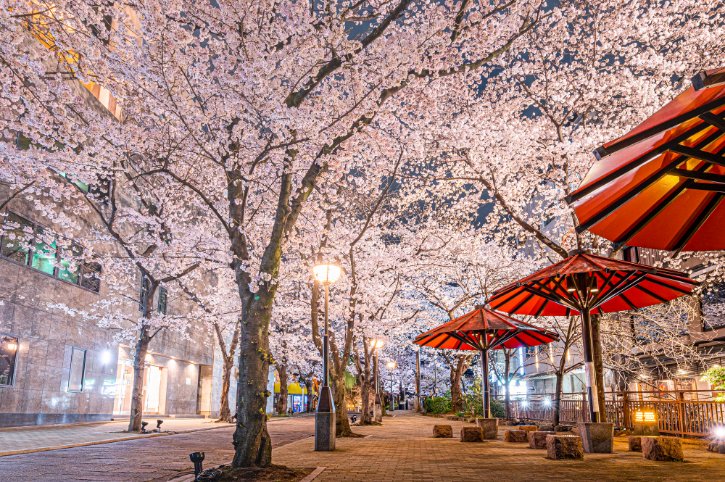
For peak seasons like New Year’s, cherry blossoms (late March to early April), Golden Week (late April to early May), and autumn foliage (late November to early December), hotels see massive demand surges.
Prices increase steadily as rooms fill up, and popular properties can sell out months in advance.
If you wait until a few weeks before your trip during these periods, you’ll face:
- Significantly higher rates (often 40% or more than early-bird prices)
- Limited availability, especially in prime locations
- Fewer choices as the best-value rooms get booked first
b. Book at Least Six Months Ahead for Peak Seasons
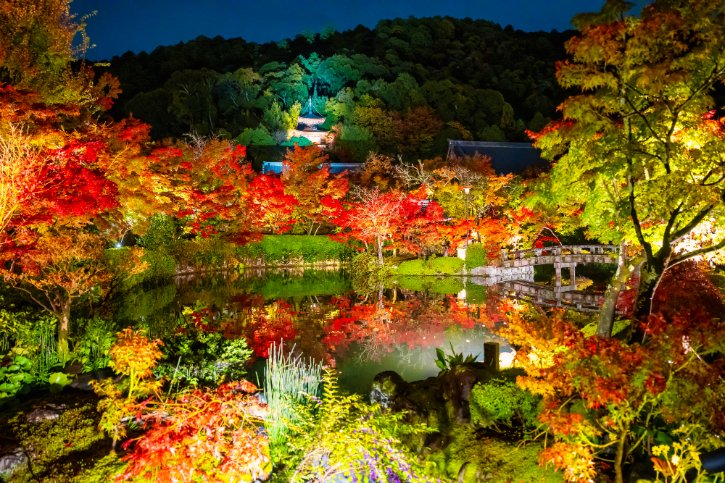
For New Year’s, cherry blossoms (late March to early April), Golden Week (late April to early May), and autumn foliage (late November to early December), you should book at least 6 months in advance.
This isn’t just about saving money—it’s about securing any room at all in your preferred location.
c. The Smart Play: Book Early with Free Cancellation
Here’s where it gets strategic. Don’t just book early. Book early with a free cancellation policy.
Most major booking platforms (Agoda, Booking.com) let you filter for free cancellation options. This gives you:
- Protection from price increases: You lock in a lower rate now.
- Flexibility to pivot: If cherry blossom forecasts shift or you find a better deal, you can cancel and rebook.
- No risk: You’re not locked into a non-refundable rate.
Think of it as a financial hedge. You secure your room and establish a price ceiling, but you maintain complete flexibility.
Pro Tip: Set calendar reminders for one month and one week before your cancellation deadline. Do a quick price check then. If rates have dropped or better deals have appeared, cancel and rebook. It takes five minutes and can save you hundreds.
3. Compare Multiple Sites Before You Book
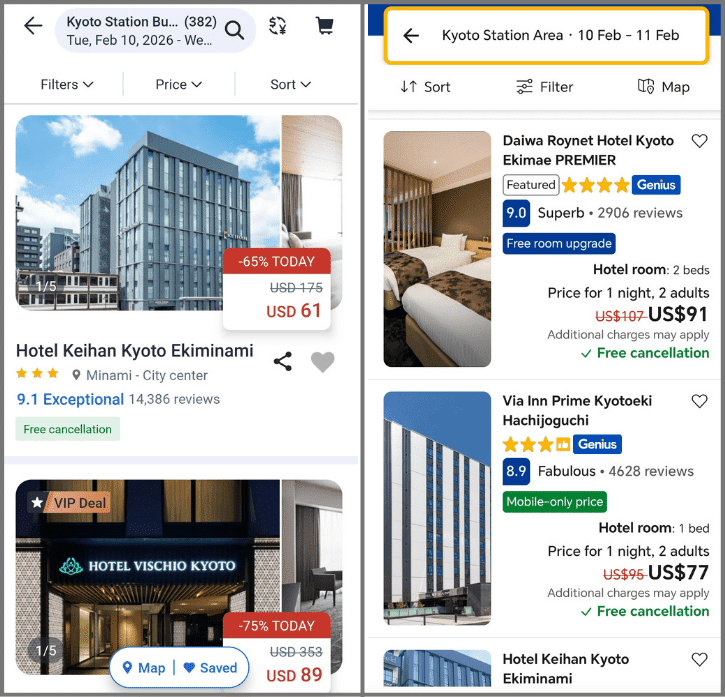
Never assume the first price you see is the best one.
Agoda and Booking.com are both owned by the same parent company, but they don’t always show identical prices.
Sometimes the difference is small. Sometimes it’s 10-20%.
a. Why Prices Vary
Both platforms run independent promotions, have different loyalty programs, and occasionally negotiate different rates with hotels. This creates pricing gaps you can exploit.
b. Agoda’s Strengths
- Originally Asia-focused, so it often has better inventory and pricing for Japanese hotels
- Frequently runs app-exclusive deals and promo codes
- Sometimes lists smaller, independent properties that aren’t on Booking.com
c. Booking.com’s Strengths
- Massive global inventory
- “Genius” loyalty program with automatic discounts (usually 10-15%)
- Often shows full prices with taxes upfront (Agoda adds them at checkout)
d. Your Action Plan
- Find your hotel on both Agoda and Booking.com
- Compare the final price including all taxes and fees
- Check both sites in an incognito browser window (to avoid dynamic pricing based on your search history)
- Book whichever is cheaper
4. Stay on Weekdays for Cheaper Rates
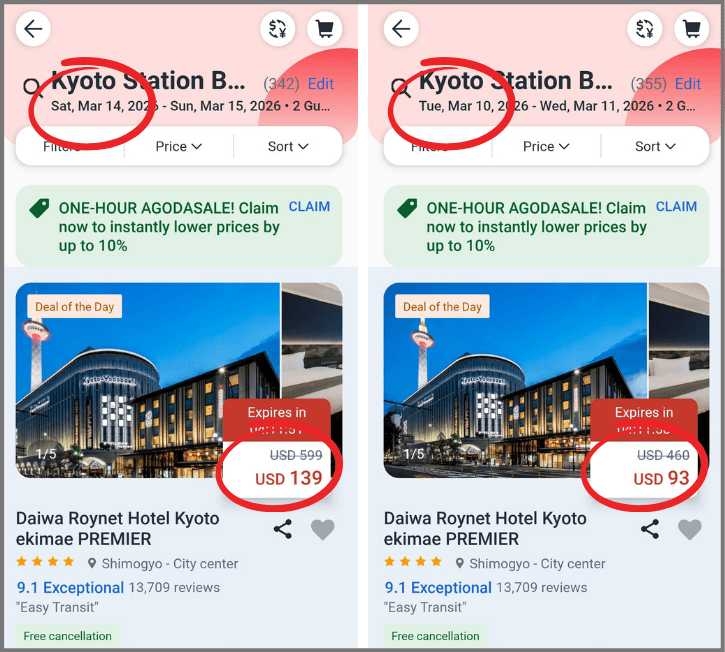
Friday and Saturday hotel rates in Osaka and Kyoto can be shockingly higher than rates from Sunday through Thursday. We’re talking 20-50% more for the exact same room.
a. Why the Weekend Premium Exists
Japanese workers and families take short weekend trips, creating a massive surge in demand on Friday and Saturday nights. Hotels respond with higher prices.
International travelers, though? You have flexibility. You’re not tied to a work schedule, so you can avoid this premium entirely.
b. The Numbers
Usually, Sunday to Thursday nights are cheaper, with Monday typically being the least expensive. Saturday is almost always the most expensive night, with Friday close behind.
5. Skip the Hotel Breakfast
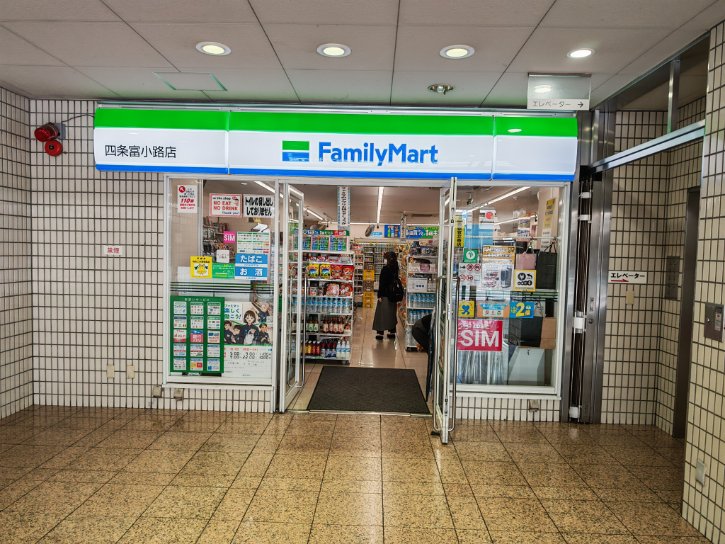
Hotel breakfasts in Osaka and Kyoto range from ¥1,500 to ¥4,000 per person. That’s $10-27 every morning.
For a couple traveling for five days, you’re looking at ¥15,000-40,000 ($100-265) just for hotel breakfast buffets.
a. The Reality Check
- Mid-range hotel buffet: ¥1,500-2,500 ($10-17) per person
- Boutique hotel breakfast: ¥4,000+ ($27+) per person
- Convenience store meal: ¥500-1,000 ($3-7) per person
Let’s be clear: hotel breakfasts in Osaka and Kyoto can be lovely. But are they worth 3-4 times the cost of equally delicious local options? Usually not.
b. The Convenience Store Solution
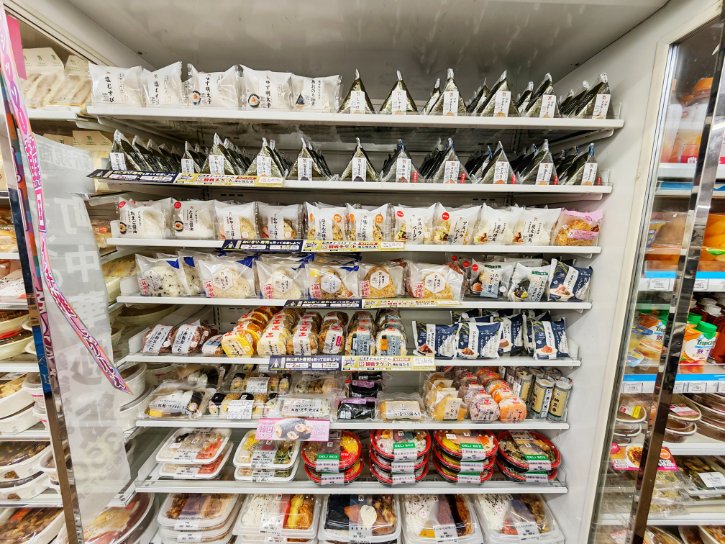
Convenience stores (7-Eleven, FamilyMart, Lawson) are everywhere in both cities and sell fresh, surprisingly high-quality food:
- Onigiri (rice balls): ¥150-200
- Sandwiches: ¥200-500
- Bakery items: ¥150-300
- Yogurt or fruit: ¥300
- Hot coffee: ¥150-250
A solid breakfast? About ¥600-750 ($4-5). You’ll save ¥1,000+ per person compared to the hotel buffet.
c. The Math
Let’s say you’re traveling as a couple for 7 nights:
- Hotel breakfast: ¥2,000/person × 2 people × 7 mornings = ¥28,000 ($187)
- Convenience store breakfast: ¥700/person × 2 people × 7 mornings = ¥9,800 ($65)
- Savings: ¥18,200 ($122)
That’s enough for a fancy dinner, a day trip, or extra souvenirs.
d. Your Move
When booking, select the “room only” or “without meals” rate.
Before finalizing your hotel reservation, check Google Maps to make sure there are convenience stores nearby.
Look for 7-Eleven, FamilyMart, or Lawson within a short walk of your hotel.
This simple check will make your mornings easier and save you money every day.

